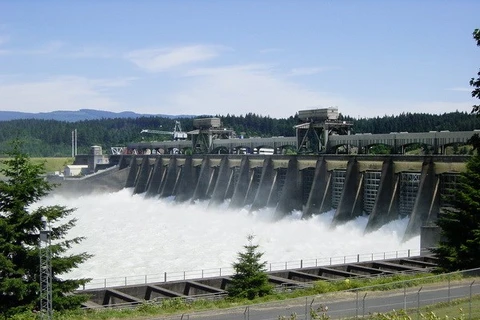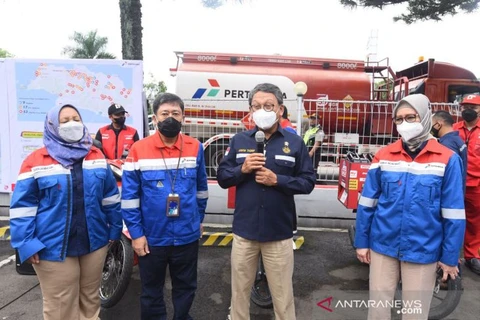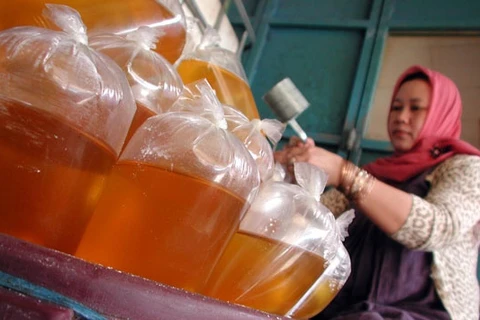 Students and teachers take a look at a solar farm at SMP 9 state junior high school in Jakarta, Indonesia. The school is one of the few that use the renewable source of energy in the capital city. (Photo: The Jakartapost.com)
Students and teachers take a look at a solar farm at SMP 9 state junior high school in Jakarta, Indonesia. The school is one of the few that use the renewable source of energy in the capital city. (Photo: The Jakartapost.com) Jakarta (VNA) – Indonesia has missed many renewable energy development goals set for 2021 due to the prolonged COVID-19 pandemic as well as "unrealistic" goals, a senior official of the country's government has said.
Statistics from the Ministry of Energy and Mineral Resources (ESDM) of Indonesia showed that renewable energy accounted for 11.5 percent of the total national energy source in 2021, much lower than the 14.5 percent target of the National Energy Plan (RUEN).
The country added only 654.7 MW of renewable energy capacity last year, reaching 77 percent of the set target, while renewable investment stood at 1.51 billion USD or 74 percent of the plan.
According to Dadan Kusdiana, Director General of Renewable Energy, RUEN is designed with the expectation that energy demand is increasing, making the results of renewable energy development much lower than the RUEN target.
In reality, the energy demand is not as high as RUEN's estimation, he said at a press conference on January 17.
The pandemic continues to rage through 2021 which resulted in the fact that some renewable energy projects were delayed.
Indonesia has set a target that renewable will account for at least 23 percent of the country's total energy supply by 2025.
To realise this, Indonesia needs to put into operation at least 2,000 MW installed capacity of renewable energy per year. However, the results achieved were lower than expected, according to the ESDM.
The ministry has set higher targets for 2022, with 648 MW of additional installed capacity, half of which will come from solar energy. It also aims to attract more than 3.9 billion USD in investment in renewable energy and energy conservation this year, nearly double that of 2021.
According to RUEN, renewable energy must contribute 15.7 percent of the total energy supply this year to be able to meet the 2025 target.
The ESDM is considering several new regulations and electricity supply business plan this year, thereby renewable energy capacity will exceed the capacity of fossil fuel-powered thermal power plants./.























